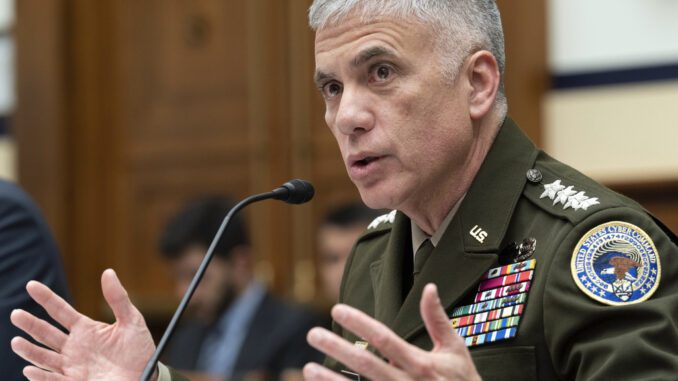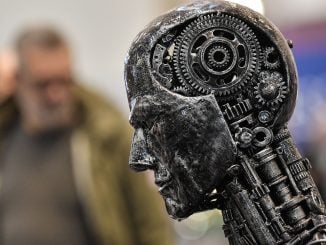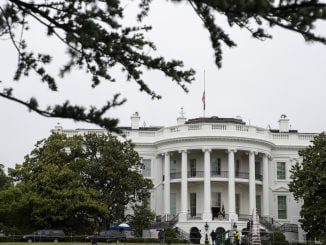
WASHINGTON, D.C. — The National Security Agency is starting an artificial intelligence security center — a crucial mission as AI capabilities are increasingly acquired, developed and integrated into U.S. defense and intelligence systems, the agency’s outgoing director announced.
Army Gen. Paul Nakasone said the center would be incorporated into the NSA’s Cybersecurity Collaboration Center, where it works with private industry and international partners to harden the U.S. defense-industrial base against threats from adversaries led by China and Russia.
“We maintain an advantage in AI in the United States today. That AI advantage should not be taken for granted,” Nakasone said at the National Press Club, emphasizing the threat from Beijing in particular.
China has in recent months stepped up cyber operations focused on U.S. and allied institutions that may include pre-positioning malware designed to disrupt military communications, cybersecurity researchers say. On Wednesday, the U.S. and Japan issued an alert saying Chinese hackers were targeting government, industrial, telecommunications and other entities that support their militaries.
The AI security center’s establishment follows an NSA study that identified securing AI models from theft and sabotage as a major national security challenge, especially as generative AI technologies emerge with immense transformative potential for both good and evil.
Nakasone said it would work closely with U.S. industry, national labs, academia and the Department of Defense as well as international partners.
Nakasone is to be succeeded as dual leader of the NSA and U.S. Cyber Command by Air Force Lt. Gen. Timothy Haugh, his current deputy.



